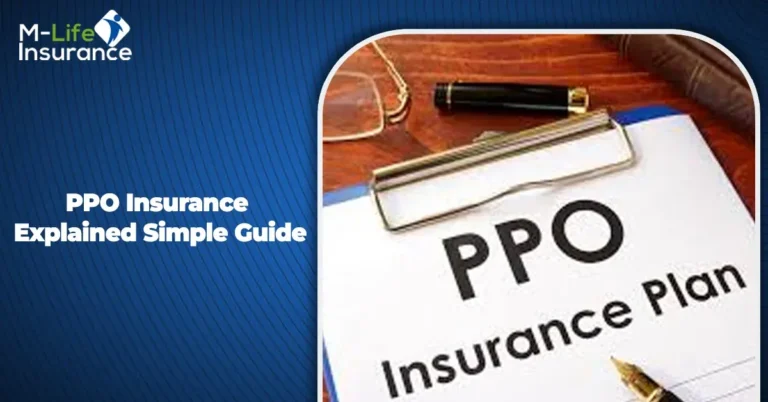Last Updated on: August 26th, 2025
Thank you for reading this post, don't forget to subscribe!- Licensed Agent
- - @M-LifeInsurance
Life insurance is all about taking care of your family and loved ones after you pass away. This means that you are helping them with the final expenses and financial support. But sometimes life insurance policies do not pay out. It is important to know when this can happen so you will not be surprised.
In this article, we will explain the situation when life insurance does not pay, and also
- Common reasons why claims are denied
- What to do if your life insurance claim is rejected
Common Conditions When Life Insurance Won’t Pay Out
Life insurance companies have certain rules about when they will not pay a claim. All of these rules are written in your policy, so it is very important to read the plan very carefully when buying a policy. Here we will discuss the main reason why an insurance claim can not be paid.
1. Non-Disclosure of Material Facts
One of the most common reasons that your claim is not paid is not sharing the important information with the insurance company. When you apply for life insurance, you must give true and complete details about your health, lifestyle and other important things. If a life insurance company finds out that you left some important information or gave the wrong information, they can refuse to pay your claim.
2. Death Within the Contestability Period
Most life insurance policies have a contestability period, this period usually starts the first two years after your policy starts. During this time, the insurance company checks your application and denies a claim if they find you gave wrong information or you are involved in committing fraud. If you pass away during this period and the insurance company finds mistakes in your application, they might not pay the death benefit. After the contestability period ends, they usually cannot refuse a claim unless there was fraud.
3. Suicide Clause
Many life insurance policies have a suicide clause in their plan. If the person who buy the policy dies by suicide in the first two years of the policy, the insurance company refuses to pay the amount. This rule is basically made to prevent people from attempting suicide after buying the insurance.
After the two years ends, most of the insurance companies pay even if the death is by suicide. So it’s important to see how long this rule lasts after buying the policy.
4. Death Due to Illegal Activities
If the person who buys the policy is caught while participating in illegal activities or doing some crime, then the life insurance also denies the claim and refuses to pay the amount. Most insurance companies do not cover deaths that happen during any criminal activity like fraud or drug dealing.
5. Death from High-Risk Activities
Some life insurance policies do not cover the deaths that happen from any high risk activity. These include skydiving, scuba diving or racing, unless you told the insurance company about these activities and they approved it. But, if you did not report to the insurance company about these activities and died doing this, the company will not give you the amount on death.
6. Lapsed or Non-Payment of Premiums
Life insurance only works if you pay your premiums on time. If you stop paying and your policy lapses, the insurance company may not pay the death benefit. Many policies give a short grace period to catch up on missed payments, but if you don’t pay within that time, the policy can be canceled.
What If My Life Insurance Claim Has Been Declined?
If your life insurance claim has been declined, it can be stressful and a very confusing experience. Here are the points that you can do;
Request a Written Explanation
The insurance company is required to provide a written explanation for the denial. This document will detail the reasons your claim was not approved.
Review Your Policy
Make sure to carefully review the policy if the insurance company’s reason aligns with the contract terms or not. Also look for the waiting period or any other clauses that can apply.
Gather Supporting Documents
Collect any medical records, death certificates, or evidence that supports your claim.
File an Appeal
Most insurance companies allow you to appeal a denied claim. Submit your supporting documents and a detailed explanation to the insurer.
How Much Does Life Isurance Cost?
Seek Professional Help
If the appeal is unsuccessful, consider consulting a lawyer who specializes in insurance claims. They can advise on whether legal action is possible.
How Long Does Life Insurance Take to Pay Out?
The time it takes for a life insurance policy to pay out depends on the complexity of the claim and whether the insurer needs to investigate any conditions.
- Straightforward Claims
If all the needed documents are provided, standard claims are usually paid within 30 to 60 days.
- Claims Under Review
If the insurance company need to investigate they check the things more closely, mostly in the waiting period and if they think some information is not correct then the claim may take several months to process
- Large or Complex Claims
Claims involving large policies or additional legal checks may take even longer.
It is important to submit all required documents promptly and maintain open communication with the insurance company to speed up the process.
Key Reasons Life Insurance Won’t Pay Out
Here’s a summarized list of the main reasons why life insurance is not paying out the claim
- Non-disclosure or misrepresentation of facts
- Death within the contestability period
- Suicide within the first policy years
- Participation in illegal activities
- Death from undisclosed high-risk activities
- Lapsed or unpaid premiums
- Policy exclusions
By understanding these reasons, policyholders can take important steps to reduce the chances of claim denial.
Preventing Denied Claims
While no policy can guarantee automatic payment, following these steps can reduce the risk of denial:
- Always provide accurate and complete information during the application process.
- Review policy exclusions and terms carefully.
- Maintain consistent premium payments.
- Disclose any high-risk activities or medical conditions upfront.
- Update your policy if there are major life changes.
Conclusion
It is very important to understand that life insurance does not always pay out, sometimes the claim can be denied due to so many reasons. If the person who is buying the policy can not give the correct health or lifestyle details, or if the premiums are not paid on time so the insurance company will not give you the money. Many insurance companies have a waiting period and in this time if you die due to any reason the amount is also denied. So always check your policy, read all the rules very carefully so you can not have any future surprises. This way, your life insurance can provide financial protection to your family and loved ones when they need it the most.
Don’t let hidden clauses or missed details put your family’s financial security at risk. Speak with a trusted life insurance advisor at Mlife insurance today to find a policy that truly protects your loved ones.
FAQs
What are the conditions when will life insurance not pay out?
Life insurance may not pay out in certain situations. This can happen if important information was not shared when applying, if death occurs within the contestability period, or if suicide happens within the first two years. It may also be denied if death happens while doing something illegal, if premiums were not paid on time, or if the cause of death is excluded in the policy.
When life insurance does not pay, what should I do?
Request a written explanation, review your policy, gather supporting documents, file an appeal, and seek professional advice if necessary.
Reasons life insurance won’t pay out?
There are so many reasons that life insurance will not pay out. Common ones include giving false or incomplete information of your health or lifestyle when applying, death by suicide during the waiting period of two years , death while doing something illegal, missing premium payments, not telling the company about risky activities like extreme sports, or other specific rules and exclusions written in the policy.
How long does life insurance take to pay out?
Simple claims usually take 30–60 days. Claims under review or during contestability may take several months. Large or complex claims can take even longer.





